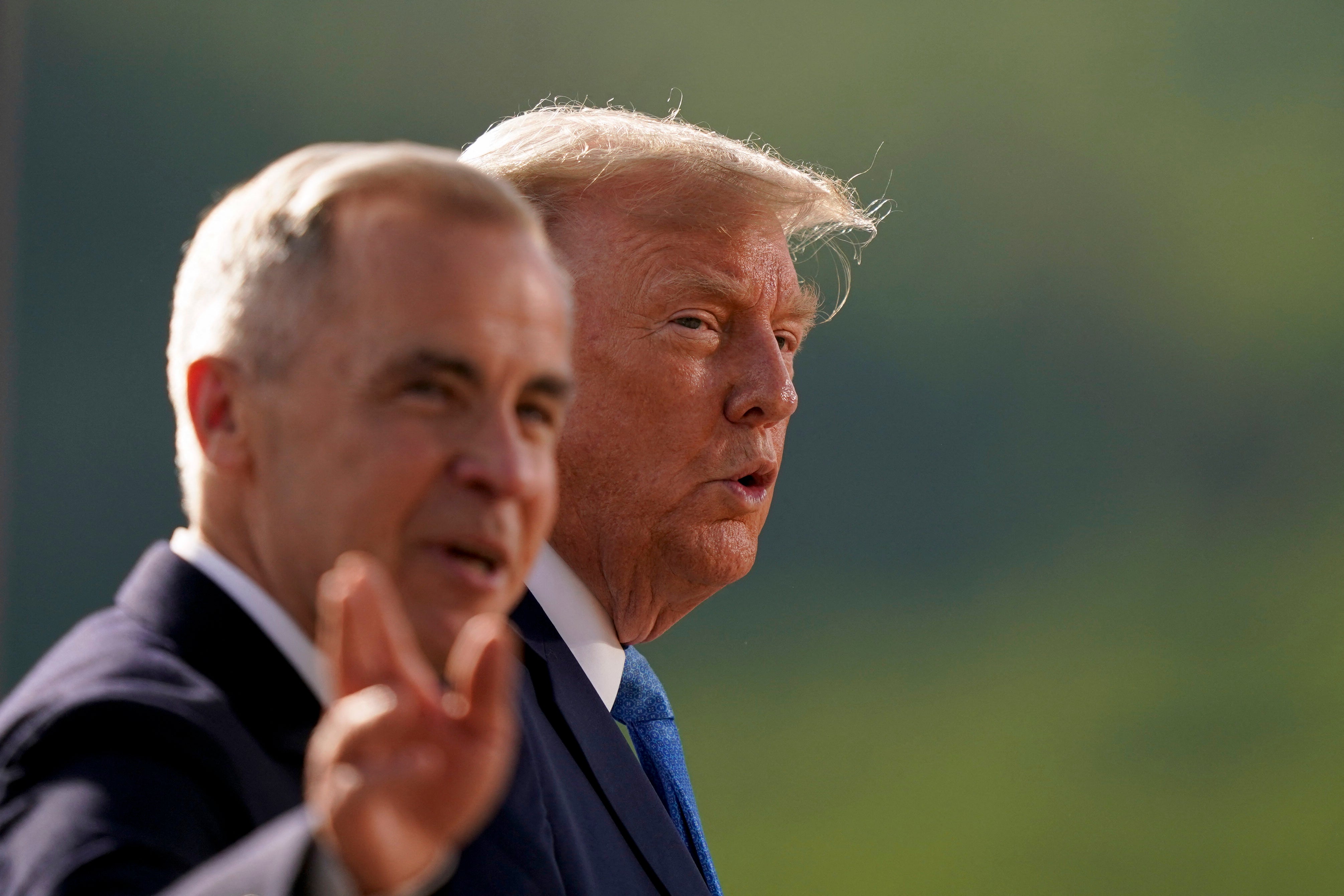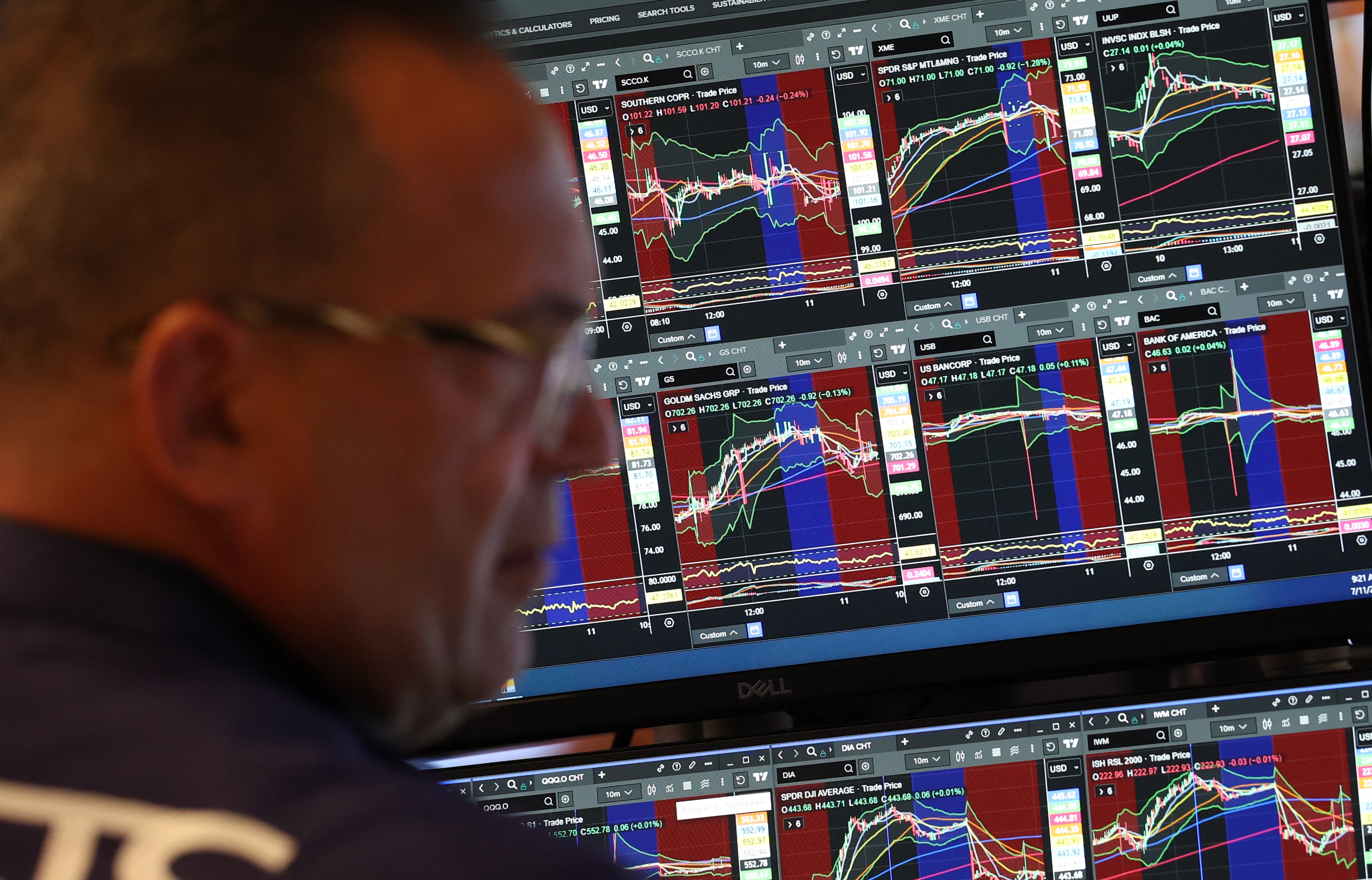In his unpredictable push to upend the global trading system, President Donald Trump has changed deadlines, blown up deals, and delivered White House speeches and decrees threatening sweeping tariffs - only to repeatedly walk them back and claim victory while throwing markets into chaos.
In the last week, Trump has sent letters to 22 countries warning of incoming tariff rates, according to his social media posts, including 50 percent taxes on Brazilian imports and 35 percent on Canadian goods.
The letters follow the administration’s insistence that the president was making “90 deals in 90 days” beginning in April. He made two. Trump heralded “liberation day” that month with the largest U.S. tariff increase in nearly a century, but he has since changed his tariff plans more than two dozen times.
A 90-day “pause” on the highest tariffs proposed in his “liberation day” platform elapsed this week. Trump then extended a deadline for negotiations to August 1, a date that he insists won’t be changing.
“There has been no change to this date, and there will be no change,” Trump wrote on Truth Social this week. “All money will be due and payable starting AUGUST 1, 2025 – no extensions will be granted.”
Now, the president says he plans to increase the 10 percent blanket tariffs on most of America’s trading partners to 15 percent or 20 percent if those deals aren’t reached — warnings of rising prices, high inflation and tanking stocks be damned.
Canada braces for another rate hike
Trump has repeatedly tied tariff increases to issues that don’t necessarily have anything to do with trade, including the prosecution of Brazilian President Jair Bolsonaro and the relatively small amount of fentanyl crossing into the U.S. from Canada.
In a letter posted to Truth Social Thursday, Trump accused Canada of failing to prevent illicit fentanyl shipments into the country as he announced a 35 percent tariff rate on some Canadian goods.
That would make an increase from the current 25 percent tariff imposed on U.S. imports from Canada that aren’t shipped under the terms of the U.S.-Mexico-Canada Agreement.
Trump also suggested he could make “an adjustment” if Canada stepped up fentanyl enforcement at the northern border.
“Throughout the current trade negotiations with the United States, the Canadian government has steadfastly defended our workers and businesses,” Prime Minister Mark Carney said Thursday. “We will continue to do so as we work towards the revised deadline of August 1.”
Carney said Canada “has made vital progress to stop the scourge of fentanyl in North America” and remains “committed to continuing to work with the United States to save lives and protect communities in both our countries.”
Trump defends Bolsonaro with tariff threat
Trump stepped into an unexpected trade war with Brazil this week after announcing a letter to President Luiz Inacio Lula da Silva that 50 percent tariffs on imported goods would take effect on August 1, in apparent retaliation for the prosecution of former president, Jair Bolsonaro.
“The way that Brazil has treated former President Bolsonaro, a Highly Respected Leader throughout the World during his Term, including by the United States, is an international disgrace,” Trump wrote on Truth Social.
“Brazil is a sovereign country with independent institutions that will not accept being abused by anyone,” da Silva replied in a statement.

Bolsonaro’s son, Eduardo Bolsonaro, has been pushing White House officials to sanction the judge overseeing his father’s prosecution. The former right-wing president is accused of trying to wage a coup to remain in power following his election loss in 2022.
Trump has called the Bolsonaro case a “witch hunt”, echoing his complaints about criminal investigations into his own efforts to overturn his election loss in 2022. But rather than singling out a judge, he has threatened sweeping tariffs that would impact the entire nation of Brazil.
The U.S. president similarly blindsided Vietnam officials, who thought they had reached a preliminary deal with the administration to lower its tariff rate.
On July 2, Trump announced that Vietnamese exports will face a 20 percent tariff — down from the 46 percent that was paused in April — or a 40 percent tariff if those goods originated in a different country.
The announcement reportedly derailed efforts among Vietnamese officials who had not formally signed off on any agreements after weeks of negotiations.
Blanket tariff increases are coming
In an interview with NBC News this week, Trump unexpectedly announced blanket levies of 15 percent to 20 percent on most trading partners that haven't yet received suggested tariff rates — going above the 10 percent baseline that’s currently in effect.
“We’re just going to say all of the remaining countries are going to pay, whether it’s 20 percent or 15 percent. We’ll work that out now,” Trump told Kristen Welker.

Trump also said he would speak with the European Union about a new tariff rate. The bloc is America’s largest trading partner, exporting more than $600 billion worth of goods in 2024 alone.
The return of TACO?
Trump’s on-again, off-again relationship with his tariff regime has earned him the nickname “TACO” — or “Trump always chickens out” — by his critics.
JP Morgan Chase CEO Jamie Dimon this week defended Trump’s tariff delays but warned that his pattern of backing down after threatening massive tax increases will only create more problems.
He also doesn’t love the nickname.
“I hate to use the word ‘TACO trade’ because I think he did the right thing to chicken out,” Dimon said during an event in Ireland.
But he warned that there has been “complacency in the market” based on the president’s pattern — one which may not hold forever.







